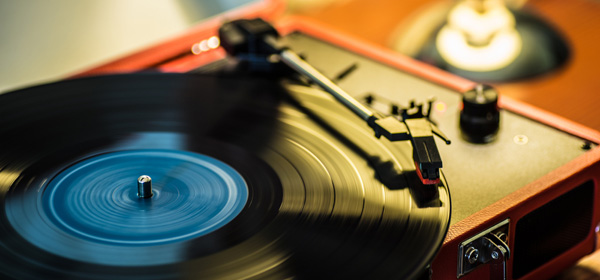We live in a disposal digital age, where old technology is quickly surpassed by the newer, faster and supposedly better.
But sometimes we have to avoid throwing the baby out with the bath water. Old technology can occasionally be better than its current digital equivalent.
Here are some things we think are still worth keeping.
Vinyl records
There are so many ways that you can listen to music in a digital format, but none of them have yet surpassed listening to music on vinyl. Whether listening through a streaming service, or on MP3, the audio is compressed to make it small enough to fit onto the listening device and be broadcast. This reduces the quality of the sound. Vinyl is what’s called a lossless format. Nothing has been lost when pressing a record. It sounds as good as the producer or band intended. Young people have cottoned on to this fact, and vinyl is enjoying a revival. There is definitely no need to ever get rid of your record player.
Radio
Streaming services and podcasts have invaded much of the ground traditionally held by radio. But as good as it is to listen to the music that you want – free of interruption – or to conversational topics that you are interested in, you are unlikely to discover anything new. Also, when news breaks, internet and television news services are not a patch on the quality of information you can access through your local radio station, particularly the excellent service offered by the ABC during emergencies such as bushfires. Radio also provides a genuine community of listeners, an experience of closer relationships with the hosts, particularly in talkback radio, which may be why radio has retained some of its popularity.
Landline telephones
Many people, particularly younger generations, have done away with their landlines and rely exclusively on their mobile phones for making and receiving calls. That can be a good idea, especially with the costs involved of keeping both technologies, but it isn’t always the case. Some advantages of keeping a landline phone include:
- The ability for emergency services to pinpoint your location in the event of a triple-zero call. (Mobile phones can only reveal the general vicinity of the caller.)
- The flexibility of untimed local calls. (Mobile phone users sometimes have to worry about staying under monthly usage limits.)
- The ability to connect a back-to-base home security alarm system, which relies on having a landline phone connection.
Before deciding whether or not to permanently ditch your landline, undertake a rigorous assessment of your telecommunications profile, including where you live, how many calls you make, and where you call. If you’re a fairly heavy user of your home phone – and reliability is important – keeping your landline may make good sense.
Digital cameras
Now that nearly everyone has a camera with them everywhere they go in their smartphone, actual cameras seem like they may be consigned to history. But in reality, at the moment, we are consigning quality photography and photos to the rubbish bin. A five-megapixel camera built into a phone may suffice when you don’t have a camera handy, but if you are taking photos that you want to create a lifetime of memories with, you are much better off taking a quality camera along for the journey. This allows you to print the photos, which you may want to frame and place on your walls or store in a photo album, presenting the images in their full glory rather than viewing them on a tiny screen.
What old technology do you still use that is better than its more modern replacement?
Related articles:
How to turn off your spying tech
Should you buy an electric car
Spring clean your technology

